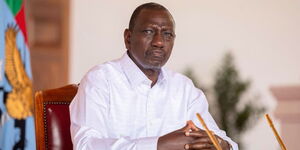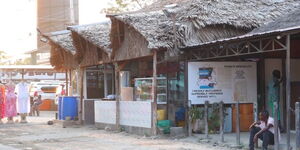Kenya will not be importing any sugar this year after the Cabinet, which sat on Thursday at State House, noted that there is enough local production to sustain the nation's demand.
The Ministry of Agriculture attributed increased production to the subsidised fertiliser sold to farmers earlier this year.
“On sugar, the meeting noted that Kenya has, for the first time, produced enough to meet local demand," noted the Cabinet dispatch obtained by Kenyans.co.ke.
"As a result, no sugar will be imported this year. This achievement is due to subsidised fertiliser provided to farmers and improved management of the sector,” part of the statement read.
This development came just two months after Kenya banned sugar imports from outside the East Africa Community (EAC) and COMESA citing an increase in local production.
The Cabinet Secretary for Agriculture Andrew Karanja, while making the announcement, noted that the country was expected to produce more than 800,000 metric tonnes this year.
He noted that over the past four years, Kenya’s production of sugar had ranged from 700,000 metric tonnes of sugar annually from 16 factories, with production peaking at around 800,000 metric tonnes in 2022.
Rebecca Miano, the then Cabinet Secretary for Trade, explained that the sugar safeguard measures from COMESA’s Council of Ministers were meant to protect vulnerable industries, like sugar, from adverse effects of trade liberalisation.
The cabinet report also revealed that the food situation in the country had stabilised, a feat that was also attributed to the subsidised the fertiliser programme.
The report noted that the country had 95.2 million 50kg bags of maize, 8.8 million bags of beans, 10.4 million bags of wheat and 2.1 million bags of rice in stock.
According to the Cabinet, this meant that most Kenyan households could now afford basic food requirements.












